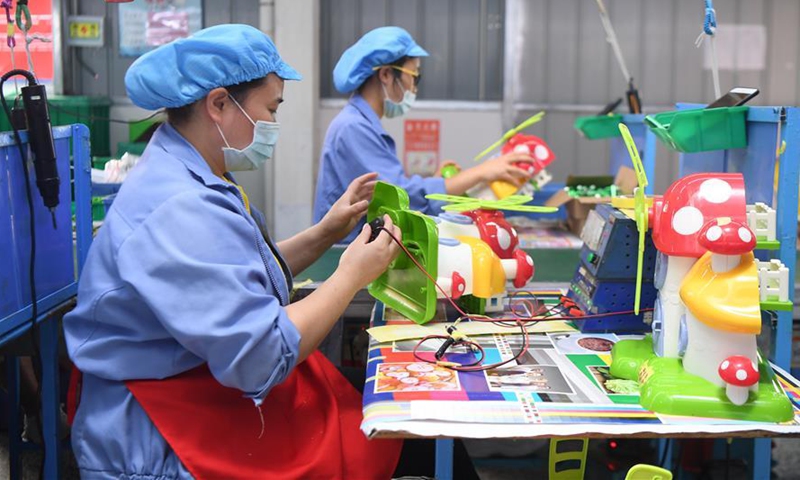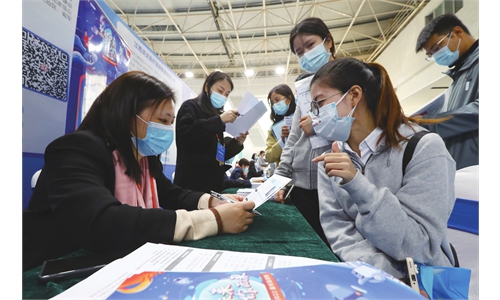Nation strengthens tax, rent reduction measures for SMEs amid latest COVID-19 outbreaks

Workers make toys at a plastic product factory in Zhangjiajie, central China's Hunan Province, May 27, 2020.File photo:Xinhua
Responsible authorities under the central government and local governments across the country have been implementing a slew of supportive measures such as tax and rent reduction targeting small and medium sized-enterprises (SMEs) in a bid to ease the financial burden on SMEs and sectors such as the services industry as the nation battles the latest wave of COVID-19 outbreaks.
China recorded a total of 1,827 new confirmed cases with 5,559 asymptomatic infections on Thursday, the National Health Commission said on Friday.
Central government departments have issued several supportive policies and measures since the beginning of March.
The State-owned Assets Supervision and Administration Commission (SASAC) issued a notice on Monday, requesting state-owned enterprises (SOEs) to reduce or waive rental charges for SMEs in medium- and high-risk COVID-19 areas.
The latest implementation came from the Zhejiang Provincial Development and Reform Commission on Thursday, which followed the standard established by SASAC for reducing rent, with a total of 53 supportive measures issued to promote the recovery of industries in the service sector, local news outlet Zhejiang Daily reported.
Veteran macroeconomic analyst Tian Yun noted that SMEs, especially those in the service sector, need more help in covering their daily expenses such as rent, wages for employees and other fees, as their income has been severely reduced due to the ongoing epidemic.
Tian added that SMEs may experience significant losses or even bankruptcy due to their loss of income and this could impact domestic employment.
The local government in Shanghai also said in a notice on Tuesday that the city will reduce and even remove rental charges for SMEs and individuals for three months in certain areas, and the reduction will be up to six months for enterprises that are severely affected.
Tian suggested there could be more financial support from the government in covering employees' medical insurance and social insurance, as well as measures such as exempting or delaying payments for utilities and issuing interest-free or reduced-interest loans.
Shanghai implemented a total of 21 measures targeting six aspects covering tax reduction, financial support, industrial recovery and enhanced epidemic prevention measures, aiming to fully assist enterprises and affected industries to recover and develop.
Tax reduction for SMEs is another indispensable aspect to benefit those who have been struggling during this tough time.
For instance, Shanghai has strengthened tax reduction and fee reduction policies for SMEs as well as individual entrepreneurs. The corporate income tax will be further reduced by half for SMEs which have an annual taxable income of more than 1 million yuan ($157,200) but less than 3 million yuan.
Pang Wei, an official from the local tax authority said at a press briefing that more than one million enterprises will be able to receive support from the measures.
East China's Jiangxi Province also issued a variety of tax reduction policies to support local businesses on Wednesday. Taxpayers who have genuine difficulties in paying property tax and tax on urban land use and who meet the conditions will be granted exemptions in 2022 in accordance with the regulations.

